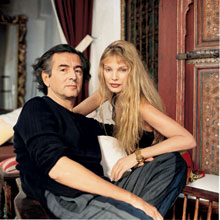The Southern Point, Part 2: Agrarians and Cavaliers

Mosler’s “The Lost Cause” – demonstrating the destroyed home of a returning CSA soldier after the war’s end
Up until recently it has been very difficult to combat the Northern domination of the press and its ability to manipulate public opinion both here and abroad. This was true in the 19th century and even more so in the 20th when Jewish forces joined the radical left in America, rallying around the press and other media industries. However, the Internet now offers us the opportunity to get out from under these stifling controls. And I predict that this will result in a gushing fountain of information reinforcing the dignity of the Southern Point as a central component in the development of White American racial consciousness.
I am thrilled to see the integrity and success of The Occidental Observer as an online phenomenon. Yet I have noticed a general dearth of articles about the Southern Tradition and I hope that perhaps I can at least begin to fill that gap as well as attract others who know more than I about the subject. We should really get something going in this direction.
I hereby pick up the gauntlet that Tom Sunic recently threw down in his article, “Which Way White Man, Part 1”:
It remains a great mystery why White American nationalists today are not more attuned to the cultural heritage of the antebellum South. If eloquently framed, it could prove to be powerful cultural artillery for safeguarding White racial identity. Southern Agrarians of the mid- thirties of the 20th century were erudite scholars from all fields of social science and literature and in many respects their aesthetic and political visions surpassed those of their contemporaries in Europe, the so-called European national-revolutionaries or national-conservatives. Instead, the image of Southerners as toothless hicks is still widespread — courtesy of not just liberal scholars but also of many lazy Whites. The South had never experienced the egalitarian steamroller of the French revolution and therefore it had been able to retain some parts of the old European mediaeval values better than Europeans themselves.
And again, in his book Homo Americanus: Child of the Postmodern Age, he suggests, “Probably now, in the open field of postmodernity, some of their traditionalist Southern legacy could be restored and used as a weapon in future culture wars”(174). Oh, Tom, if you only knew the scope of what you were pointing towards. Read more





